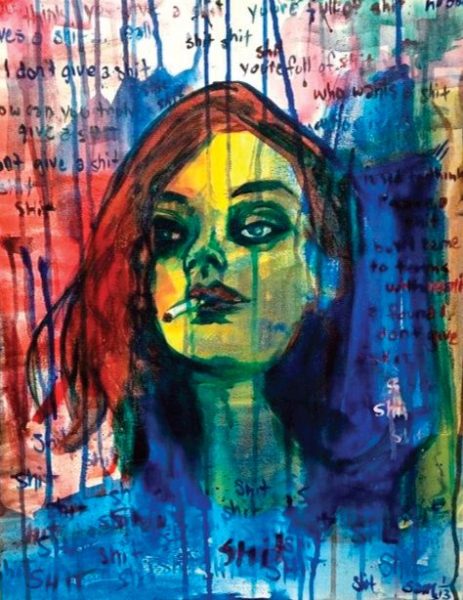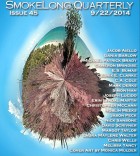Tell me about what inspired your piece “For Cubby.”
I wrote it when I was experimenting with Oulipian exercises, especially those that used permutations or combining different texts together. When I learned of the death of Hubert Selby, Jr., in 2004, I decided to use some of these methods to write a light nonsense piece inspired by his work—a sort of playful parody of his style, to honor his memory. That was my way of working through mourning one of my favorite novelists, who had long been an artistic as well as a personal inspiration to me. In correspondence, he told me to call him “Cubby,” a nickname people had called him his whole life, hence the title of the piece.
I notice that you play with language in this piece, specifically spoken language and dialect. Can you say a little bit about your choices here?
The piece is ultimately based on vocabulary and rhythms of Selby’s writing. He had a brilliant ear, obviously, and one that I can only quite literally imitate. I believe I used vocabulary and sentence structure from two passages in Last Exit to Brooklyn. Since I wrote this ten years ago, I honestly don’t remember exactly what I did!
One of the things I love about this piece is the way it drifts in between what seems like realism and what seems like wordplay and soundplay: it makes me think of the Wallace Stevens quote that a poem “must resist the intelligence almost successfully.” Can you say a bit about the tension between sense and nonsense in this short?
That’s really what I was going for—the combination of working-class, gritty realism from Selby with a playfulness that led to absurdity. The final product is not at all like something Selby would have written, and yet it strongly echoes his work. I think the tension here makes the piece humorous, or just plain weird, or both. In any case, it was fun to write, and I hope it’s fun to read, too.
Speaking of poetry, what do you think the line is between a prose poem and a piece of short fiction? How do you define the difference, if you define it at all?
That is a great question—to me it’s just a matter of how you want to brand yourself and what sorts of artistic communities you want to identify with. Other than that, I don’t define it, and certainly not for my own work. I just like to make art with words and let other people decide if it’s poetry or fiction.
What are you working on right now?
I’m working on a sequence of related fictional pieces as a sequel to my novel, White Kitty, which was published in 2009.



 The core workshop of SmokeLong Fitness is all in writing, so you can take part from anywhere at anytime. We are excited about creating a supportive, consistent and structured environment for flash writers to work on their craft in a community. We are thrilled and proud to say that our workshop participants have won, placed, or been listed in every major flash competition. Community works.
The core workshop of SmokeLong Fitness is all in writing, so you can take part from anywhere at anytime. We are excited about creating a supportive, consistent and structured environment for flash writers to work on their craft in a community. We are thrilled and proud to say that our workshop participants have won, placed, or been listed in every major flash competition. Community works.